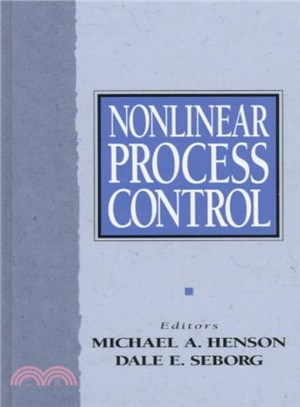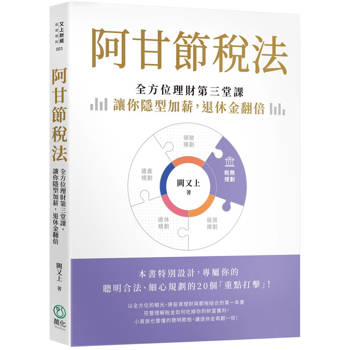| FindBook |
有 1 項符合
Nonlinear Process Control的圖書 |
| 圖書館借閱 |
| 國家圖書館 | 全國圖書書目資訊網 | 國立公共資訊圖書館 | 電子書服務平台 | MetaCat 跨館整合查詢 |
| 臺北市立圖書館 | 新北市立圖書館 | 基隆市公共圖書館 | 桃園市立圖書館 | 新竹縣公共圖書館 |
| 苗栗縣立圖書館 | 臺中市立圖書館 | 彰化縣公共圖書館 | 南投縣文化局 | 雲林縣公共圖書館 |
| 嘉義縣圖書館 | 臺南市立圖書館 | 高雄市立圖書館 | 屏東縣公共圖書館 | 宜蘭縣公共圖書館 |
| 花蓮縣文化局 | 臺東縣文化處 |
|
|
圖書介紹 - 資料來源:博客來 評分:
圖書名稱:Nonlinear Process Control
內容簡介
Many common industrial process control problems exhibit nonlinear behavior, and the limitations of traditional linear controllers in managing these processes have become increasingly apparent. Meanwhile, new model-based controller design strategies—coupled with more inexpensive and powerful computer—have made nonlinear process control much more practical. As a result, understanding nonlinear process control has become a high priority in both industry and academia.
Nonlinear Process Control assembles the latest theoretical and practical research on design, analysis and application of nonlinear process control strategies. It presents detailed coverage of all three major elements of nonlinear process control: identification, controller design, and state estimation.
An introductory chapter outlines the issues driving nonlinear process control research, as well as several classic techniques. The book then offers a detailed introduction to nonlinear process modeling, which is central to every nonlinear control strategy.
Once the fundamentals are understood, Nonlinear Process Control covers two leading approaches: input/output linearization and nonlinear predictive control. The book also shows how to design nonlinear state observers that permit control even if on-line measurements of all state variables cannot be obtained.
Finally, the book discusses new techniques for obtaining nonlinear empirical models using artificial neural networks, which are becoming increasingly prevalent in industry.
Nonlinear Process Control reflects the contributions of eleven leading researchers in the field.
It is an ideal textbook for graduate courses in process control, as well as a concise, up-to-date reference for control engineers.
16堂課戰勝學測英文句型,GO!(附習題本夾冊)
這樣讀才有fu:日本語初級閱讀入門-閱讀策略+語感訓練+重點字彙一次搞定
QR Code版 速戰速決!日本語文法.句型N1.N2活用辭典(25K+QR Code線上音檔)
新版 絕對合格聽說讀寫通!新制日檢!N5必背必出單字(25K+QR Code 線上音檔)
絕對合格日檢N5讀本(下):單字x文法x聽力x閱讀-看得懂、聽得懂、說得出,考得上,考試生活雙贏!(16K+QRCode線上音檔)
推活讓世界更寬廣!韓語篇:臺灣第一!生而為粉必須擁有的K-POP語言專書
推活讓世界更寬廣!英語篇:第一本!深入介紹粉絲文化及語言,跨國境追星必備之書!
學測英文閱讀五合一(附解析夾冊)
全方位英文總複習(A版)(附解析夾冊及隨身讀)(修訂五版)
首爾大學韓國語+2B練習本(附QRCode線上音檔)
這樣讀才有fu:日本語初級閱讀入門-閱讀策略+語感訓練+重點字彙一次搞定
QR Code版 速戰速決!日本語文法.句型N1.N2活用辭典(25K+QR Code線上音檔)
新版 絕對合格聽說讀寫通!新制日檢!N5必背必出單字(25K+QR Code 線上音檔)
絕對合格日檢N5讀本(下):單字x文法x聽力x閱讀-看得懂、聽得懂、說得出,考得上,考試生活雙贏!(16K+QRCode線上音檔)
推活讓世界更寬廣!韓語篇:臺灣第一!生而為粉必須擁有的K-POP語言專書
推活讓世界更寬廣!英語篇:第一本!深入介紹粉絲文化及語言,跨國境追星必備之書!
學測英文閱讀五合一(附解析夾冊)
全方位英文總複習(A版)(附解析夾冊及隨身讀)(修訂五版)
首爾大學韓國語+2B練習本(附QRCode線上音檔)
|












